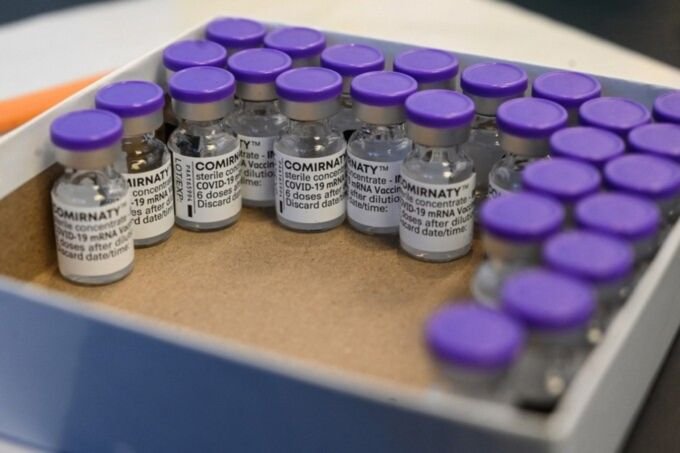
5 things to know when getting the Pfizer vaccine 13
Pfizer vaccine was conditionally approved by the Ministry of Health for urgent needs in preventing and fighting the Covid-19 epidemic on June 12.
The Ministry of Health also allows the second dose of Pfizer vaccine to be mixed with people who have received the first dose of AstraZeneca vaccine, in case of supply shortage and must closely monitor the health of the injector.
Reactions after Pfizer vaccination
The most common reactions in children 12-15 years old after receiving the Pfizer vaccine are pain at the injection site (over 90%), exhaustion and headache (over 70%), muscle pain and chills (over 40%).
The rate of injectors over 16 years old experiencing adverse reactions is about 10% lower than that of adolescents.
Some other less common reactions include lymphadenopathy, hypersensitivity reactions (rash, itching, rash, urticaria, angioedema), insomnia, limb pain, irritability, itching at the injection site… as well as
Who gets the Pfizer vaccine?
According to Comirnaty’s Instructions for Use information sheet approved by the Ministry of Health, the Pfizer vaccine is indicated to create active immunity to prevent Covid-19 in people 12 years of age and older.
The injector will receive each dose of 0.3 ml intramuscularly.
Pfizer vaccine storage conditions are very strict, in deep negative temperatures from -90oC to -60oC, until the expiration date of 6 months.
Pfizer vaccine is in concentrated suspension for injection.
Can people with chronic diseases such as blood clotting disorders, hypertension, osteoarthritis… get the Pfizer vaccine?
People with underlying medical conditions or chronic diseases that have been stably treated must be carefully screened and need to be vaccinated with Covid-19 vaccine at a hospital or medical facility with sufficient initial emergency resuscitation capacity.
Pfizer/BioNTech vaccine vial at a vaccination site in France on April 15.
Should people who have received one dose of the AstraZeneca vaccine receive a second dose of the Pfizer vaccine?
The Global Alliance for Vaccines and Immunization (GAVI), the World Health Organization (WHO) is considering a consensus on switching between different vaccines, in a Covid-19 vaccination course.
By June, studies and recommendations from the National Immunization Committee of Canada and several European countries (Spain, Germany, UK…), suggested that people who had received the first dose of the AstraZeneca vaccine
The minimum time gap between two doses of AstraZeneca and Pfizer injections may be 4 weeks or 8-12 weeks, depending on the study.
Do people who have received two doses of the AstraZeneca vaccine need to receive an additional dose of the Pfizer vaccine?
There is currently no official recommendation from WHO, or the US Centers for Disease Control and Prevention (CDC) about injecting an additional dose (booster) after completing two doses of Covid-19 vaccine.
Monitoring the prolonged protective effect of the vaccine shows that the protection period is up to 6-12 months.





